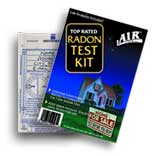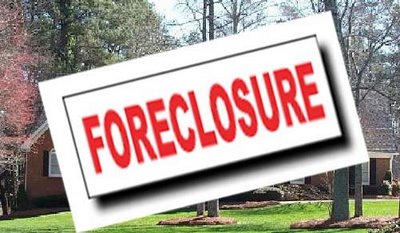Tenants impacted by foreclosure: Frequently Asked Questions
What is a foreclosure?
When an owner falls behind in mortgage payments, foreclosure is the court process by which a bank forces the sale of a building used as security in order to pay off the owner’s debt. In an effort to protect tenants who live in a building that is in foreclosure, the city passed the Keep Chicago Renting Ordinance (KCRO). Under the KCRO, you may be eligible for a lease renewal or $10,600 in relocation assistance. To learn more click HERE.
Who owns the building while it is in court?
Just because a building is in foreclosure does NOT mean that the building has been foreclosed on or will be foreclosed on. Until the court approves a sale and there is a confirmation of sale, your landlord still owns the building. In most cases, the bank acquires the property and becomes the owner.
What are some common signs that my building might be in foreclosure?
– Maintenance suddenly stops
– Utility shutoff notices
– Banks sending notices to the landlord
– Realtors hanging around the building, or taking pictures of the building
– The landlord disappears and/or stops collecting rent.
How long does the foreclosure process take?
The court process takes an average of nine months. If the owner is not able to satisfy the bank’s requirements, the court puts the property up for sale where it is usually bought by the bank.
Where can I find out if my building is in foreclosure?
1. Get the PIN # of the property by going to www.cookcountyassessor.com and entering the building address.
2. Enter the PIN # at www.cookrecorder.com or call the Recorder of Deeds at 312-603-5050 and give them your PIN #. If the building is in foreclosure, they can provide you with the foreclosure notice (the “lis pendens”) and the associated foreclosure court case number.
3. For more information about the case go to www.cookcountyclerkofcourt.org or call the Chancery Court, at 312-603-5133. You can also go to http://www.cookcountyclerkofcourt.org – go to online case info – full docket search – and search the chancery division for the landlord’s name under defendant or using the case #.
Under the Keep Chicago Renting Ordinance (KCRO), if your building is in foreclosure, you may be eligible for a lease renewal or $10,600 in relocation assistance. To learn more about the KCRO, click HERE.
Do I still have to pay rent?
Yes. As long as you are living in the unit you must pay rent. Checks or money orders are best so that you have proof of payment. You can still be evicted for nonpayment of rent even though your landlord is in foreclosure.
What if I don’t know to whom to pay rent or the landlord stops collecting it?
Click here to find our who the owner is or contact a lawyer to assist you in determining the new owner of the property. Be sure to ask any new people claiming to be the owner for proof before giving them rent money. The law only requires that tenants make a good faith effort to pay the rent if the landlord disappears. Some examples of good faith efforts to pay rent may include:
– Holding the rent in a money order
– Using the rent on utilities your landlord was paying
– Using the rent to make repairs to the property
– Sending a letter via certified mail, requesting information from the new owner on where to send the rent. (Keep a copy of the letter for yourself)
Do I have the right to break my lease because my landlord is in foreclosure?
No…however, if you are covered under the Chicago Residential Landlord Tenant Ordinance and did not receive proper notice, please see below under Are landlords required to tell their tenants that their building is in foreclosure?
The bank has taken over the building. What do I do?
The bank is your new landlord. You must pay them rent once they have notified you as to whom and where to pay, and they are responsible for repairs, any utilities paid by the old landlord, etc. If you are uncertain of who to pay, hold your rent in escrow. Also, check to see if you’re covered by the Keep Chicago Renting Ordinance. You may be eligible for relocation assistance if the bank chooses not to renew your lease.
The sheriff posted a notice saying that my landlord or unknown occupants must vacate the building. Does this apply to me?
No. If your name is not on the notice, you do not have to move. Immediately contact the sheriff’s office at (312) 603-3365 to inform them that there are tenants in the building and contact an attorney to get legal help. If the sheriff shows up, you will need to show them identification, as well as your lease, a piece of mail, or other evidence proving that you are a tenant in the building and not the landlord.
Will I have to move? How much time will I have once a new owner takes over?
If the building is foreclosed upon and sold, the new owner must give you 90 days or until the end of your lease, whichever longer. However, if the new owner would like to use the unit as a personal residence, they do not have to honor the lease, but they must give you at lest 90 days notice prior to eviction proceedings. Once the lease expires, the owner must give you a 30 day notice in writing before proceeding in eviction court. (This is assuming that you are lease complaint and up to date on rent.)
NOTE: The sheriff’s office can and will evict tenants during the winter, with the exception if it is 15 degrees or snowing.
Can the bank or new owner put me out without a court date?
No. If anyone tries to evict you before taking you to court, then it is an illegal eviction, also known as a lockout. Call the police, file a police report (get officers name and badge #) and contact the Tenants Rights Hotline at 773-292-4988. If you receive a summons to court make sure to contact an attorney.
Will this eviction show on my record?
If you were evicted solely because of the foreclosure your attorney can petition the judge to seal the record. If you are evicted for nonpayment of rent, it will be on your record.
The bank offered me a “Cash for Keys” deal. What should I do?
Sometimes banks offer tenants a cash for keys deal in order to vacate the building more quickly. Evaluate the entire situation first and make sure you have enough time to find a safe and decent apartment. Make sure you get any deal in writing and talk to a lawyer before you sign. If the bank does not offer a settlement feel free to ask for one. However, be aware that many tenants are eligible for $10,600 under the KCRO, which is more than most banks will initially offer. Call us or contact an attorney before agreeing to any “Cash for Keys” deal.
How do I get my security deposit back?
If your tenancy is NOT governed by the Chicago Residential Landlord Tenant Ordinance (CRLTO): The bank is not responsible for your deposit. If you do not receive your security deposit back within 45 days of moving you can take your landlord to court. If you know your landlord is in foreclosure court or is about to lose the building ask for written permission to live out your security deposit. If you live out your deposit without permission you can be evicted for non-payment of rent. If your tenancy is CRLTO please see below.
Additional Information for tenants who are covered under the Chicago Residential Landlord Tenant Ordinance (CRLTO): If you live in Chicago, the Ordinance governs your tenancy unless you reside in:
- An owner occupied building containing less than seven apartments;
- A hotel, motel, inn, rooming house, or boarding house (unless you have resided there for more than 31 days and pay rent on a monthly basis); or
- A hospital, convent, monastery, school dormitory, temporary overnight or transitional shelter, cooperative, or
- A building owned by your employer (assuming your right to live there is conditioned upon you being employed in or around the building).
What happens to my security deposit?
In the event that the building is lost to foreclosure, the lender is responsible if the landlord fails to return the security deposit.
Are landlords required to tell their tenants that their building is in foreclosure?
If your tenancy is governed by the CRLTO: The landlord is required to tell current tenants about foreclosure filings within seven days of being served with a foreclosure complaint. The landlord must also inform any potential tenants before they move in. Tenants who were not properly informed about the foreclosure can sue for $200 in damages and/or terminate their leases.
Additional References:
Building Inspectors: Call 311 for an inspection if you have repairs that need to be made or are lacking utilities.
If you need assistance moving or with a security deposit call 311 and inform them that your landlord is in foreclosure.
Request an inspection online
Lawyers Committee for Better Housing: (312)-347-7600
Legal Assistance Foundation (Subsidized Tenants): (312)-341-1070
Sheriffs Eviction Unit: (312)-603-3365
Chancery Court: (312)-603-5133
Metropolitan Tenants Organization Tenants’ Rights Hotline: (773)-292-4988 Open: Mon-Fri, 1-5pm
Chicago Legal Clinic: (773)-731-1762
Citizens Utility Board: 1-800-669-5556
 What is radon?
What is radon? Is there a test for radon?
Is there a test for radon?
 In August of 2008 tenants from a building in Englewood called MTO’s Tenants Rights Hotline complaining about egregious conditions including broken security locks, pest infestations, and lack of essential services, like heat. MTO immediately sent organizers out to assess the situation. The Ada-Throop buildings are subsidized by the US Department of Housing and Urban Development (HUD). In addition to confirming the deplorable conditions tenants reported, MTO organizers learned that the building was in foreclosure and that the building’s subsidy was at risk.
In August of 2008 tenants from a building in Englewood called MTO’s Tenants Rights Hotline complaining about egregious conditions including broken security locks, pest infestations, and lack of essential services, like heat. MTO immediately sent organizers out to assess the situation. The Ada-Throop buildings are subsidized by the US Department of Housing and Urban Development (HUD). In addition to confirming the deplorable conditions tenants reported, MTO organizers learned that the building was in foreclosure and that the building’s subsidy was at risk.